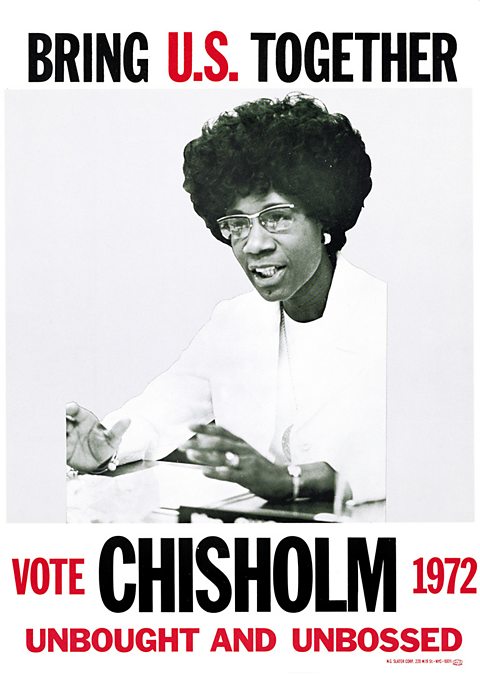Changes by 1975
Advancements in civil rights

After King's death, civil rights campaigns continued. By 1975, significant improvements for black Americans had occurred:
- By the end of 1968, 60 per cent of schools in the South had been desegregationRemoval of laws that separate people from different races in public places and day-to-day life.. (However, the unpopularity of bussing The practice of transporting children to schools outside their immediate area to ensure schools had a racial balance. meant this number had dropped to 40 per cent by 1974, as parents objected to their children having to travel across town or objected to mixed-race education.)
- President Johnson introduced a policy of affirmative actionWhen policies or programmes are introduced to help a group, or groups of people, overcome disadvantage. to improve opportunities for black Americans (though the policy caused resentment among many white Americans and some black Americans).
- Due to the actions of the civil rights movement, black Americans now had more political power. For example, Shirley Chisholm was the first black woman to be elected to CongressThe legislative body of the US government, made up of the Senate and the House of Representatives.. Chisholm was even popular enough to be a serious contender for the presidency in 1972. She ran for the right to represent the Democrats in the presidential election, but she was defeated by a white nominee, George McGovern.
McGovern was defeated by the Republican Richard Nixon. Many of his supporters wanted to see an end to the riots and did not support further action on civil rights. Nixon promised to bring back law and order, ending the riots. He took some actions to help black people, including:
- subsidyMoney given by a government to support something. to help black businesses
- more commitment to school desegregation
- a plan to increase black employment
It remained the case, however, that black Americans did not have equality in the USA. They had made progress but challenges such as institutional racism Racism which deliberately or unwittingly rests in the policies, procedures, operations and culture of public or private institutions. It can reinforce individual prejudices and be reinforced by them in return. remained.
| Successes | Challenges |
| Registration of black voters | Poverty |
| More black people elected to political office | Institutional racism |
| Decline of legal segregation | A divided civil rights movement with mixed aims |
| Successes | Registration of black voters |
|---|---|
| Challenges | Poverty |
| Successes | More black people elected to political office |
|---|---|
| Challenges | Institutional racism |
| Successes | Decline of legal segregation |
|---|---|
| Challenges | A divided civil rights movement with mixed aims |